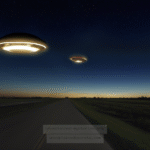Can Psychic Abilities Be Scientifically Tested and Proven?
Can Psychic Abilities Be Scientifically Tested and Proven?
The allure of psychic abilities has captivated humanity for centuries, sparking debates, research, and intrigue across various fields including psychology, parapsychology, and even neuroscience. But the question remains: can these enigmatic abilities be scientifically tested and substantiated? This article delves into the depths of this fascinating topic, exploring the historical context, core concepts, documented cases, and the implications of psychic phenomena in our understanding of consciousness and human potential.
Historical Context of Psychic Abilities
The fascination with psychic abilities can be traced back to ancient civilizations. The Greeks consulted oracles, while shamans in indigenous cultures were believed to possess extraordinary spiritual insights. In the late 19th and early 20th centuries, the field of parapsychology emerged, with researchers like J.B. Rhine at Duke University conducting experiments to study phenomena such as telepathy and clairvoyance. Rhine introduced the Zener cards, which were designed to test individuals’ abilities to perceive information beyond normal sensory channels.
Despite rigorous studies, skepticism persisted. The scientific community largely dismissed psychic phenomena as pseudoscience, primarily due to the lack of reproducible results. This skepticism has motivated many researchers to explore more sophisticated methods of testing psychic abilities, leading to a substantial body of literature that still fuels the debate today.
Core Concepts of Psychic Abilities
At the heart of the discussion on psychic abilities are several core concepts, including:
- Telepathy: The ability to transmit thoughts or feelings between individuals without using known human senses.
- Clairvoyance: The purported ability to gain information about an object, person, location, or event through extrasensory perception.
- Precognition: The ability to perceive or predict future events.
- Psychokinesis: The ability to move or manipulate objects with the mind.
These abilities challenge our traditional understanding of physics and consciousness, pushing the boundaries of what is considered scientifically possible. Researchers aim to develop frameworks that can accommodate these phenomena, creating new paradigms for understanding human capabilities.
Documented Cases of Psychic Phenomena
Throughout history, there have been numerous documented cases of alleged psychic phenomena that provide intriguing, albeit anecdotal, evidence supporting the existence of these abilities. Some notable examples include:
- Uri Geller: The Israeli psychic became famous in the 1970s for his purported ability to bend spoons and perform other feats of psychokinesis. Geller’s performances have been both celebrated and debunked, raising questions about the authenticity of his abilities.
- Edgar Cayce: Known as the “Sleeping Prophet,” Cayce provided psychic readings while in a trance state, often diagnosing illnesses or predicting future events. His accuracy in many cases has led to ongoing interest in his life and work.
- The Stanford Research Institute (SRI): In the 1970s, researchers at SRI conducted experiments on psychic phenomena, particularly focusing on remote viewing, where individuals could “see” distant locations. The results, while controversial, suggested some level of potential validity.
Key Point: While many documented cases of psychic abilities exist, the scientific community remains divided on their authenticity, often citing the need for more rigorous methodologies.
Scientific Testing of Psychic Abilities
Efforts to scientifically test psychic abilities have evolved over the years. Early experiments, such as those conducted by Rhine, faced criticism for their lack of rigorous controls and statistical analysis. Modern researchers employ more sophisticated techniques, including double-blind studies, to eliminate biases and ensure that results are not influenced by the participants’ expectations.
One notable example is the work conducted by Dr. Dean Radin at the Institute of Noetic Sciences. Radin has explored various aspects of psychic phenomena, including precognition and telepathy, using controlled experiments that yield statistically significant findings. For instance, his experiments on precognition, where subjects predict future events, have shown positive results, suggesting that the human mind may operate beyond conventional time constraints.
Challenges in Proving Psychic Abilities
Despite the intriguing evidence, numerous challenges hinder the scientific proving of psychic abilities. These include:
- Skepticism and Bias: Many scientists remain skeptical about the existence of psychic phenomena, often dismissing positive results as chance or methodological flaws.
- Reproducibility: One of the pillars of scientific validation is reproducibility. Many psychic phenomena are difficult to replicate in controlled settings, leading to doubts about their legitimacy.
- Subjectivity: Psychic experiences are often highly subjective, making it difficult to quantify or objectively measure their validity.
Warning: While many individuals claim to possess psychic abilities, it is vital to approach such claims critically, as the potential for fraud and deception exists in this realm.
Alternative Perspectives on Psychic Phenomena
While mainstream science often dismisses psychic abilities, alternative perspectives provide a different lens through which to view these phenomena. Some researchers and practitioners propose that psychic abilities are inherent aspects of human consciousness, waiting to be discovered and understood.
For example, the field of quantum physics offers intriguing parallels between consciousness and the nature of reality. Concepts such as entanglement and non-locality challenge our traditional understanding of space and time, providing fertile ground for exploring the potential for psychic phenomena.
Common Misconceptions About Psychic Abilities
The realm of psychic abilities is rife with misconceptions that cloud public understanding. A few prevalent myths include:
- All Psychics Are Fraudulent: While some individuals may exploit the concept of psychic abilities for personal gain, many practitioners genuinely believe in their abilities and have had authentic experiences.
- Psychics Can Predict the Future with Certainty: Many psychics claim to provide insights into future events, but these predictions are often probabilistic rather than definitive, reflecting potential outcomes rather than certainties.
- Psychic Abilities Are Inherited: While some claim that psychic abilities run in families, many individuals report developing these skills later in life through practice and heightened awareness.
Notable Fact: The term “psychic” comes from the Greek word “psychikos,” meaning “of the mind,” highlighting the intrinsic connection between these abilities and consciousness.
Best Practices for Investigating Psychic Abilities
For those interested in exploring psychic phenomena, whether as a researcher or a curious individual, employing best practices is essential for ensuring rigorous investigation. Here are some guidelines:
- Establish Clear Protocols: Design experiments with clear hypotheses and controls to minimize biases and ensure reproducibility.
- Utilize Blind Studies: Implement double-blind conditions to prevent participants’ expectations from influencing outcomes.
- Document Findings Thoroughly: Keep detailed records of methodologies, results, and participant feedback for future reference and analysis.
Future Developments in Psychic Research
The future of psychic research is promising as new technologies and methodologies are developed to explore these phenomena. Advancements in neuroscience, such as brain imaging, may provide insights into the neurological correlates of psychic abilities. Additionally, interdisciplinary approaches that integrate psychology, quantum physics, and spirituality may yield richer understandings of consciousness and its potential.
As researchers continue to push the boundaries of human understanding, the dialogue surrounding psychic phenomena may evolve, leading to greater acceptance and exploration of these mysterious capabilities.
Conclusion
The question of whether psychic abilities can be scientifically tested and proven remains a complex and nuanced topic. While historical accounts, documented cases, and modern research present compelling evidence for the existence of these phenomena, challenges in proving them scientifically persist. The scientific community’s skepticism, coupled with the subjective nature of psychic experiences, creates an ongoing debate that invites further exploration.
As we stand at the intersection of science and spirituality, the investigation of psychic abilities presents not only a challenge but an opportunity to expand our understanding of consciousness and the human experience. Whether mere curiosities or profound aspects of existence, psychic phenomena continue to captivate and inspire, urging us to look beyond what we know and embrace the mysteries that lie ahead.
Other Articles
Recent Posts
- What Happened to Flight MH370? The Conspiracy Theories That Still Haunt Us
- What Secrets Lurk Within the Walls of the Infamous Trans-Allegheny Lunatic Asylum?
- What Evidence Supports the Existence of Bigfoot in the Pacific Northwest?
- What Happened to the Indus Valley Civilization? Unraveling the Mysteries of Ancient Urban Life
- Can Telepathy Be Scientifically Proven Through Laboratory Evidence?







